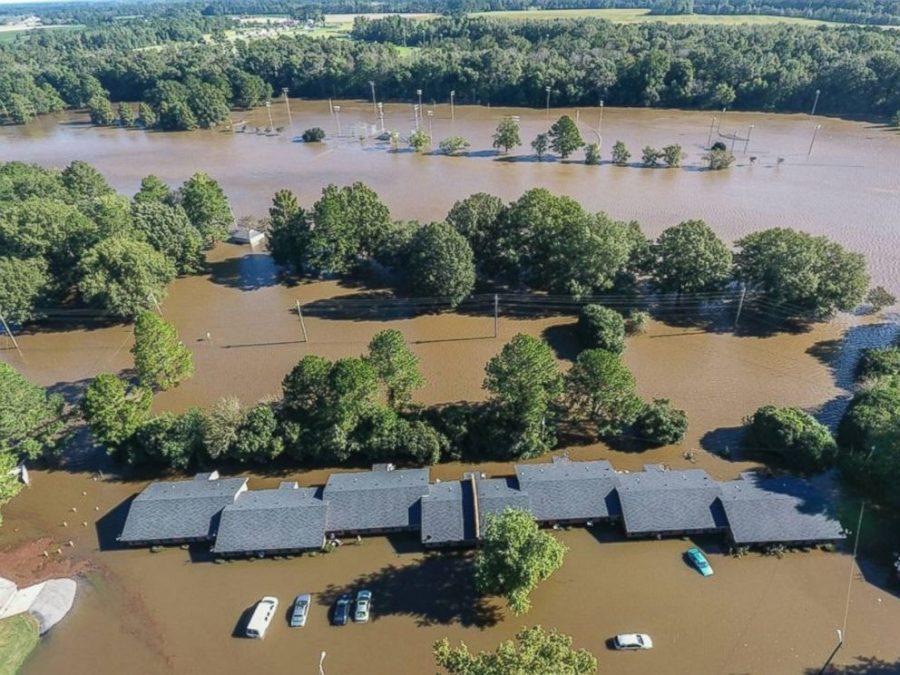Category 5
Hurricane Matthew leaves debris and destruction in its wake.
After 12 chaotic days, Hurricane Matthew’s journey from the Caribbean to the East Coast of United States has been reclassified to a post-tropical cyclone. From the beginning of the tropical storm to the various hurricane categories (one through five), the lives affected and damage created has been devastating.
“There’s been a really serious hurricane,” said President Obama, speaking Sunday at an event for an Illinois candidate — CNN. “People were hit. They weren’t hit as directly as we had feared, but it has left a lot of destruction in its wake.”
Currently, over 800 Haitian citizens are dead and at least 23 in the United States, according to CNN.
The Caribbean took the main hit with 160 mph winds on Oct. 1; Hurricane Matthew was classified as category five. A hurricane’s category is determined by the winds range (i.e. 74 to 95 mph is a category 1); the higher the range, the higher the category. Matthew’s storm eyewall passed over parts of coastal Florida, Georgia and South Carolina from Oct. 7 into Oct. 8.
“This rainfall is leading to record-breaking flooding over portions of eastern North Carolina,” said the National Hurricane Center. “It may result in life-threatening flooding and flash flooding elsewhere across the region.”
Though the storm has weakened, threats still remain. Homes have been destroyed. Cities have been flooded. People have been killed. The extensive amount of damage and millions of power outages from Florida to the Carolinas pose environmental issues and safety hazards. Currently, about three million people remain without power. Driving conditions are not safe with roads breaking apart as a result of the heavy flooding.
One of the cities hit hardest was Fayetteville, NC. The National Coast Guard reacted to the wind and flooding by wading through chest-high waters to save stranded people. Numerous residents, like in Fayetteville, still need to be rescued.
“I met with a lady, at least 80 years old, who just lost everything,” said Fayetteville Governor McCrory at Press Conference on Oct. 10. “And she is sitting in a school cafeteria at this point in time, crying, and wondering what her life is going to be all about.”
Downed trees and powerlines pose danger to community cleanups. Organizations, like Red Cross, assist the numerous victims by creating evacuation shelters and assisting the injured.
At SMCHS, The Red Cross, a student-run club, had a blood-drive last week. The students donations will be deposited into the blood bank; some of the blood is likely to assist the injured from the disaster.
Currently, the government estimates that Matthew has caused $6 billion in damage.
Though Hurricane Matthew is predicted to die in the Atlantic, the catastrophe it imposed will last for months as residents clean up and work through the recovery process.









